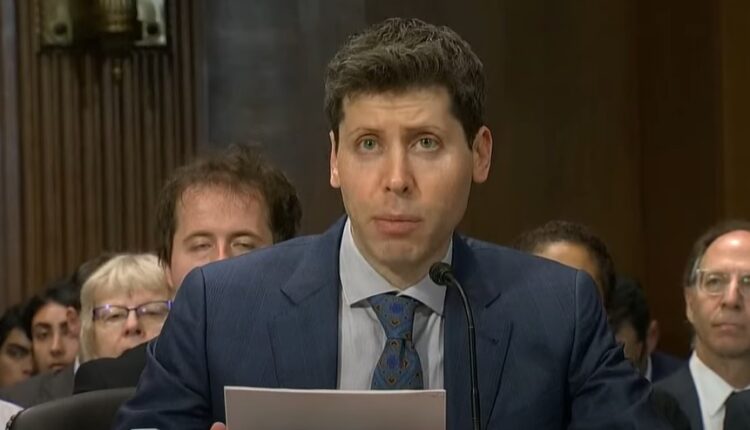
ChatGPT Founder Testifies Before US Congress And Calls for Regulations On Artificial Intelligence
OpenAI and ChatGPT founder Sam Altman testified in front of lawmakers at the Senate Judiciary Subcommittee on privacy and technology on Tuesday. Recognizing the urgency of the matter, the White House gathered top technology CEOs, including Altman, to discuss AI. Lawmakers in the United States have been seeking ways to promote the benefits of AI while safeguarding national security and preventing misuse. However, reaching a consensus on AI regulation has proven challenging.
Interestingly, Chair Richard Blumenthal, D-Conn. opened the hearing with a recording of his remarks, which he later revealed was created by ChatGPT, both in substance and the voice itself. It was a powerful illustration in the power of the technology to deliver realistic human-like dialogues.
In his testimony, Mr. Altman emphasized the need for AI regulation and security standards—and even suggested that companies should be required to conduct system testing and publish the results before launching AI technologies. This requirement was proposed to supersede bad actors, or the AI itself, from using the technology’s powerful processing ability for nefarious purposes.
Altman also stressed the importance of AI regulation, highlighting the rush of companies to bring increasingly advanced AI to the market by investing significant resources. However, some critics fear that this rapid advancement could lead to harmful consequences, including the potential for AI to pose a threat to humanity itself. Altman reiterated his stance on the need for regulation and security measures to mitigate these risks.
In a recent development, an OpenAI staff member proposed the establishment of a specialized agency responsible for granting AI licenses in the United States. Referred to as the Office for AI Safety and Infrastructure Security (OASIS), this agency would address concerns related to AI’s security and infrastructure. Altman did not specifically mention OASIS in his written testimony, ] but emphasized the importance of a flexible government regime that can adapt to technological advancements and regularly update security standards.
Another witness at the hearing was Christina Montgomery, the director of trust and privacy at International Business Machines Corp. She is expected to urge Congress to focus regulatory efforts on areas with the potential for significant social harm caused by AI.
Recently. experts in the field have raised concerns about licensing, suggesting that it may hinder smaller players in the AI industry or become irrelevant it rapidly evolves. However, proponents argue that licensing can help focus supervision efforts and prevent abuses. OpenAI, with support from Microsoft Corp., is also calling for international cooperation on AI regulation and incentives for security compliance.
Tuesday’s hearing can be considered a crucial step towards establishing oversight of AI in the United States, which is seriously lagged the overall pace of development. It was only about seven weeks ago that Elon Musk, CEO of electric vehicle maker Tesla and co-founder of OpenAI, joined a group of AI experts and industry executives in calling for a six-month pause in the development of AI systems more powerful that the one he himself co-developed.
With today’s committee meeting, Congress appears willing to help put the brakes on AI and ChatGPT advancements before it escapes from Pandora’s Box.



